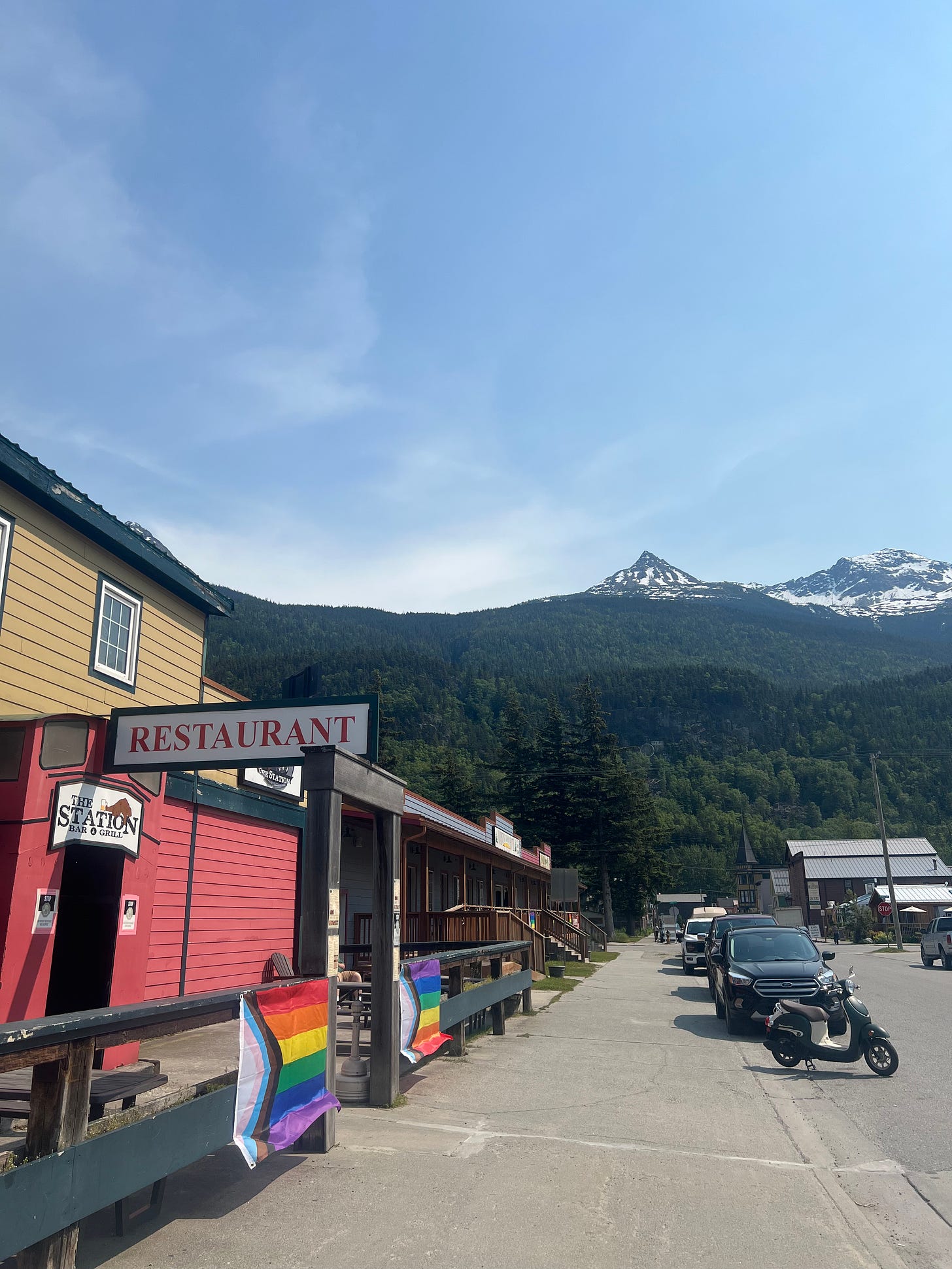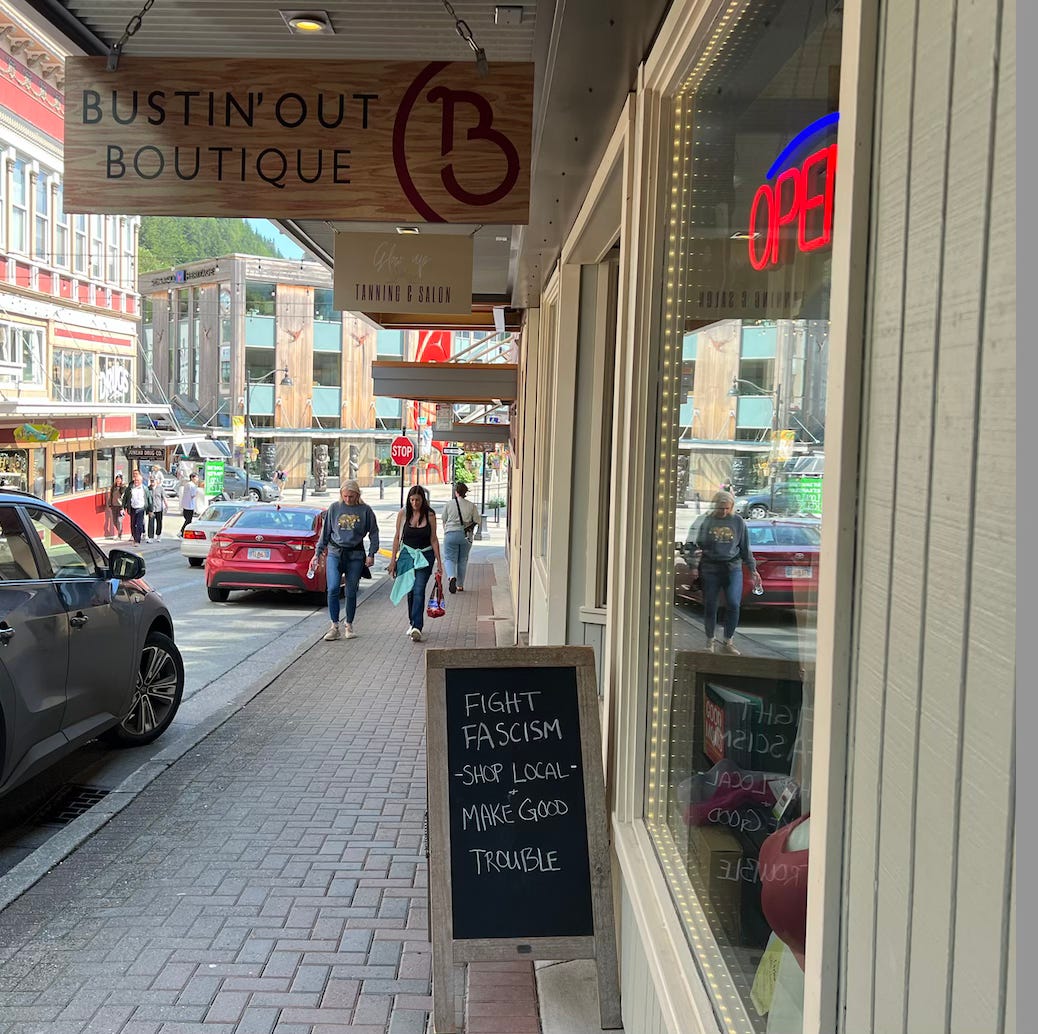Alaska: The Last Frontier, just not for wokeness
I lost count of the many progress pride flags I encountered in Alaska
Alaska: the wild and beautiful state referred to as “The Last Frontier.” By area, it’s America’s largest state, and most of it is unpopulated.
You might, like me, think of Alaskans as the tough, rugged type—masculine, independent, freewheeling and free-thinking. Fishers, hunters, miners, and surely all Republicans. (As it happens, 54.5% of Alaskan voters went for President Trump in 2024, far lower than I would have imagined—though the state has voted Republican in 15 consecutive elections.)
I had the chance to go on a free cruise trip to Alaska in June. I had never been. The stops included the cities (or towns) of Juneau, Skagway, and Ketchikan.
In each city, I lost count of the number of progress pride flags hanging from shop windows and private homes. It was no different than walking downtown in Vancouver or New Westminster, where every second shop has one of those obnoxious and overtly political flags, or stickers, on display. It was not at all what I expected to see in Alaska: The Last Frontier, but not for wokeness, apparently.
It started in Juneau, the capital city, where a woman’s brassiere shop featured a sandwich board outside that read: “Fight fascism, shop local, make good trouble.” We (myself and two other journalists) wandered inside to inquire as to how one might fight fascism while purchasing a bra or panties. The shop owner was inside. Before answering, she asked us where we came from. Canada, we told her.
“Do you even know who our president is?” she asked.
Yes, yes, we said. The conversation went downhill from there. I am still not sure how this woman believes she is fighting fascism—or if she even has a solid grasp of the definition or concept of the word. “It’s just a political statement that I wanted to put out there,” she finally admitted. There you have it.
Her sign mustn’t be good for business. The shop was empty. But I could be wrong.
Perhaps the progress pride flag is used by Alaskans to attract tourists to their businesses. Do they hope that the flag could give them a competitive edge over the many duplicate businesses that operate within the small tourist district of each city? Do they assume that “city folk” love the flag? That we will be impressed by its adoption way out in the Alaskan frontier? Or, are they genuinely on board with the political ideology—queer theory, critical theory, intersectionality—that the flag represents?
In Alaska, you can scarcely find public WiFi, the grocery shelves I saw were half empty—with their products often vastly overpriced—there are no Ubers, most locals were driving rusted out, old SUVs instead of Teslas (like in Vancouver). The progress pride flags seemed comedically out of place. Like stumbling across McDonald’s litter in some pristine wilderness. What is this trash doing here, you wonder.
I suppose that if you cannot offer most of the trappings of city life to your tourists, but wish that you were able to, then a silly flag is a low-effort stand in.







They’re everywhere. I’m composing a small card to leave in these businesses listing the many kinds of people who are put off by the banner: detrans, PITT writers, lesbians, rad fems etc.
Bustin’ Out Boutique is a great name for a bra store, you have to admit.